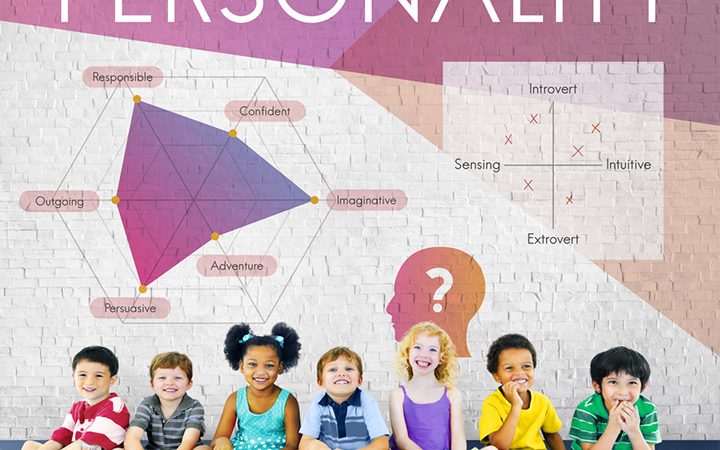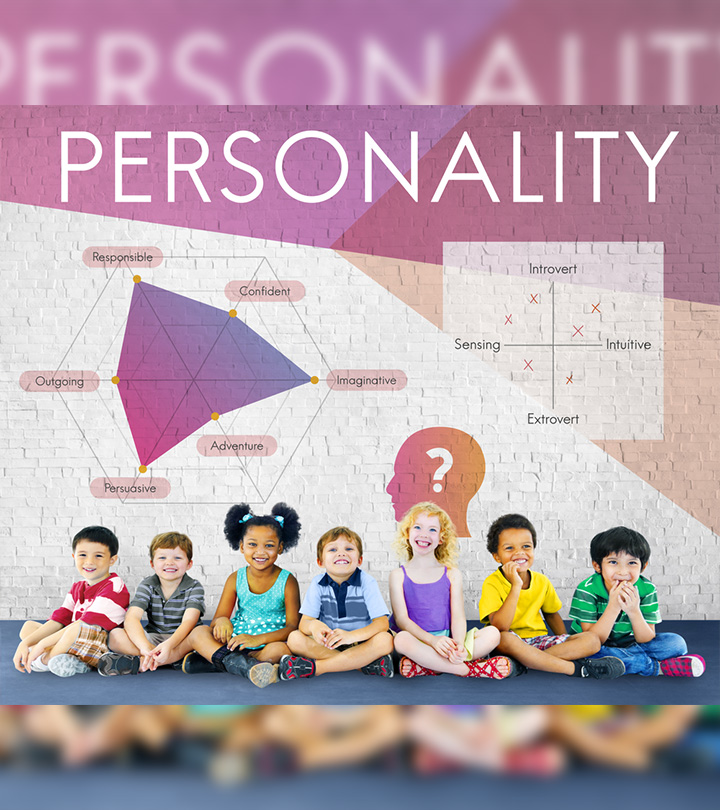Personality development in childhood is influenced by multiple developmental and environmental factors. As the child passes through various developmental stages, parents must enable them to grow socially, emotionally, and mentally. Such growth helps to develop their personality and form healthy interpersonal relationships. As human development occurs right from the initial years, childhood experiences should be enriched to enhance the child’s mental and physical growth and social skills.
Read this post to learn about personality development in children and some tips to help promote it in your young ones.
What Is Personality Development For Children?
Personality development refers to the formation of an individual’s personal qualities and characteristics or an organized behavioral pattern that sets each child apart. A child’s personality is reflected in their interaction with and reaction to social situations. Since every child has a unique personality that evolves, they should be allowed to enhance their personality at various early stages of development.
15 Tips For Personality Development In Childhood
As a child grows mentally and physically, entering the intellectual and learning phase of life, a confident personality prepares them to overcome challenges. Here are some ways to support your child’s personality development:
1. Avoid labeling
Children are deeply affected by the words used to describe them or others in their surroundings. They may believe the negative labels parents use (such as lazy or careless), preventing them from improving. Hence, use positive remarks and be patient while correcting their behavior.
2. Pay attention and listen
Younger children seek attention as they learn new things every day and are eager to share it with others. They express their amusement by constantly talking and asking questions. At this stage, the child should be given the required attention. Be willing to listen to them without cutting them off midway, which may discourage them from sharing their ideas.
3. Be a role model
To help your child pick up good traits, display positive and moral behavior. Children learn the most from their surroundings. When they see you behave a particular way, they will be more positively impacted. For example, seeing you being polite, kind, and helpful will allow them to understand the importance of those traits.
4. Encourage playtime
For a growing child, playtime is essential. Unstructured and long hours of play are particularly important. When children are involved in group activities, it helps improve their social skills, thus playing a role in developing their personality. A child who can make friends is more confident and secure about themselves. Therefore, allow them to interact with their peers as much as possible.
5. Avoid gadgets
Young children love to explore what’s on the internet, which can provide information that even schooling may not be able to. However, ensure that children spend minimal time with gadgets, particularly while playing video games or using social media. Social media regularly introduces new, lucrative trends that may waste the child’s mental and emotional energy, leaving them socially drained.
6. Lay down the rules
Rules are not always about restricting a child but informing them about their responsibilities and moral limitations. Laying down certain rules helps children align with them, preventing misbehavior. Following the code of conduct is also important for the child to be socially acceptable.
7. Encourage independence
Parents tend to assist young children in all their tasks, thus restricting their individuality. They may become accustomed to their parents’ nurturing attitude, making them excessively dependent. Allowing children to function independently in small tasks, such as combing their hair, packing their school bag, or selecting their clothes while shopping, may help them develop a sense of responsibility and independence.
8. Practice gentle parenting
Avoid being harsh with the child. Physical or verbal abuse is not an accepted form of punishment for children. Being abusive will push the child, affect your relationship with them, and restrict their personality development. Being patient is key for raising a socially healthy child.
9. Introduce a sport
Taking up a sport encourages the child to be a team player and make friends outside the classroom. It also helps keep the child physically fit, relieve stress, and build their character by boosting their self-confidence.
10. Inculcate a positive mindset
Teaching the child to be optimistic in any situation is an essential life skill. It helps them deal with stress and overcome any challenge they face. People like to be around optimistic people rather than those who have a negative attitude toward life.
11. Set goals
A lack of goals results in a lack of motivation to improve themselves. Therefore, set small, achievable goals for children to encourage them to keep working and improve their skills. Accomplishing goals allows them to become more goal-oriented, eventually bringing good results.
12. Boost their self-esteem
Building a child’s self-esteem cannot happen overnight but requires consistent appreciation for their good qualities and accomplishments. Constantly correcting a child may destroy their self-confidence and lower their self-esteem. Hence, patience and appreciation are the best way to show love to young children and help them develop their self-esteem.
13. Teach self-control
As children grow older, they become comfortable expressing themselves and may do so aggressively at times. Therefore, teaching children self-control and emotional management will help them develop a calm and composed personality.
14. Propagate individuality
Individuality refers to the qualities and characteristics that distinguish a child from others. Allow children to develop and maintain their individuality as long as they cause no harm to themselves or others. Teaching them to be comfortable in their skin is important for developing self-confidence. When they are comfortable with themselves, they can better fit into larger social groups.
15. Introduce hobbies
Introducing children to recreational activities enables them to explore new interests. These hobbies could become a major part of their personality. Having hobbies also help stay balanced and deal with stress. Hobbies may range from singing, dancing, and playing a sport to creative storytelling or writing.
Personality is the overall grooming of a person that determines their behavior in different social settings. A child’s personality is built based on their ideologies, knowledge, passion, and general outlook of life, among other things. While personality development is a long process, the initial childhood years formulate the child’s mindset. Therefore, consistent work is paramount for the child to reach their true potential.
The following two tabs change content below.




































